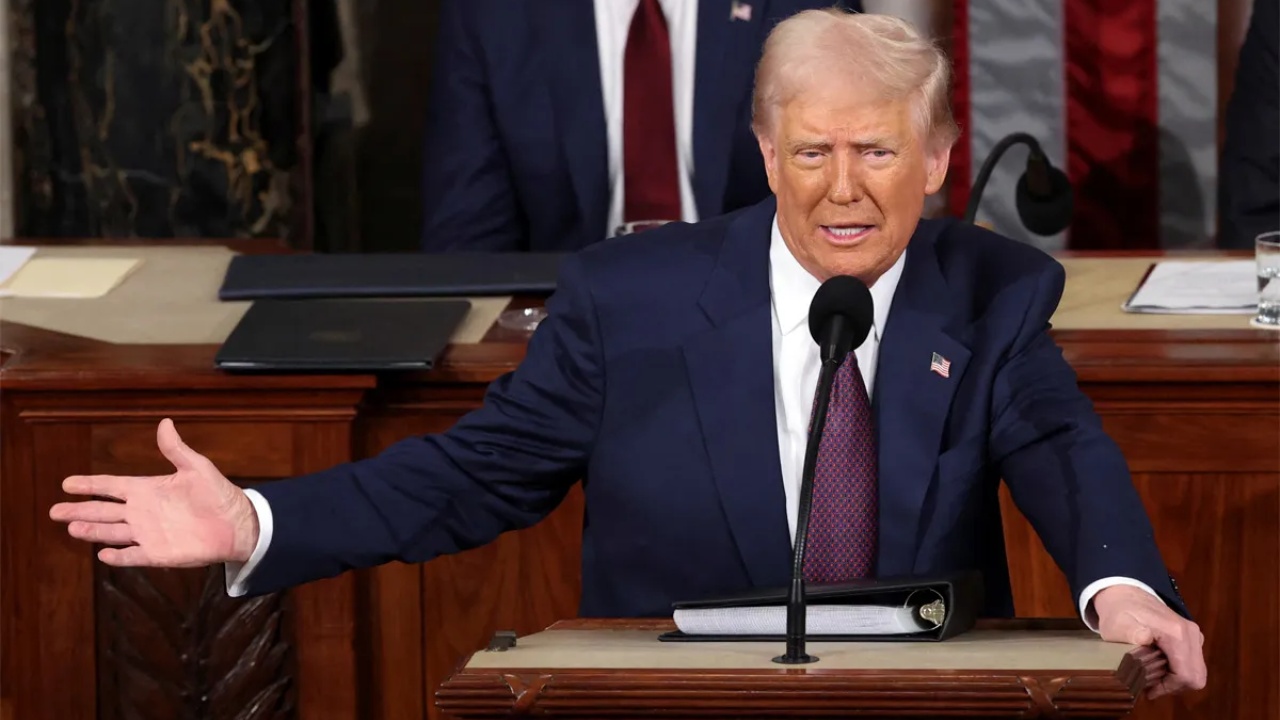In a surprising and unusual statement, former U.S. President Donald Trump has made an offer to Canada to become the 51st state of the United States.
This unexpected suggestion has created a wave of discussions online and across political circles in both countries.
While speaking at a recent event, Trump said, “We love Canada. Great people, great country. I think they would be better off joining us as the 51st state. Imagine the opportunities—stronger economy, better defense, and one big team.”
His words quickly went viral on social media platforms, with some supporting the idea jokingly, while others took it more seriously.
Trump didn’t provide many details on how such a move would work, nor did he mention whether he had spoken to any Canadian leaders about it. But his bold claim has drawn attention in both Washington and Ottawa.
Many political experts say this is not the first time Trump has made controversial or headline-making statements. Some believe this could be a way for him to grab media attention ahead of the upcoming 2024 U.S. presidential election.
“He knows how to spark interest and keep people talking,” said a U.S. political analyst on CNN. “Even if this isn’t a real offer, it gets people thinking—and talking about him.”
In Canada, the response has been mostly humorous. Canadian citizens and media outlets have shared memes and jokes online, many saying they’re proud of their independence and have no interest in becoming part of the U.S. One popular tweet read, “Nice try, Donald. But we’re good up here with our poutine and free healthcare.”
Some Canadians, however, did raise concerns about the seriousness of the remark. A few political commentators suggested that if such a proposal were ever made official, it would bring massive changes, both good and bad.
There would be questions about governance, laws, taxes, healthcare, education, and even culture. Canada and the U.S. may be neighbors, but they have very different systems and values in many areas.
Legal experts have also weighed in, saying that making a country like Canada a U.S. state would be almost impossible under current laws.
According to Article IV, Section 3 of the U.S. Constitution, Congress must approve the admission of new states. Canada, being a sovereign nation with its constitution, would have to dissolve its government and merge with the U.S.—something that has never been done and is highly unlikely.
The Canadian government has not made any official statement in response to Trump’s comment. But a senior political advisor, who preferred to stay anonymous, said, “Canada is proud of its sovereignty, and we don’t see any situation where that would change.”
Meanwhile, Trump supporters in the U.S. have praised the idea, calling it “visionary.” Some said Canada has resources, educated citizens, and a similar culture, making it a good match. Critics, on the other hand, said the comment was reckless and lacked serious thought.
Whatever the intention behind Trump’s statement, it has once again put him at the center of global attention. It’s unclear if this will have any real-world impact, but it adds another dramatic moment to Trump’s long list of controversial remarks.






